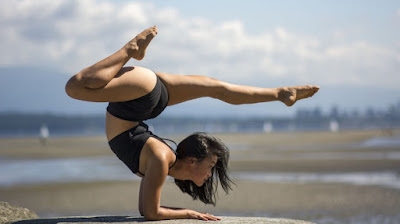The Practice of Hatha Yoga - Hatha Yoga is mainly practiced for health and vitality. Hatha Yoga was introduced in the 15th century by Yogi Swatmarama. Hatha yoga focuses on the purification of the physical being which leads to the purification of the mind or vital energy. The exploration of these physical-spiritual connections and body centered practices led to the creation of Hatha Yoga. Today In the West, hatha yoga has become wildly popular as a purely physical exercise regimen divorced of its original purpose.
Whatever the historical details, Krishnamacharya has become the undisputed father of modern-day hatha yoga. Krishnamacharya's first lessons in yoga were from his father and his grandmother and passed on through generations of practice.
Hatha Yoga follows in that vein and thus successfully transcends being particularly grounded in any one religion. This exploration of these physical and spiritual connections and body centered practices led to the creation of Hatha Yoga. Hatha Yoga has been included in the life style of these traditions. Hatha Yoga classes tend, among other things, to emphasize physical mastery.
Hatha also means a force or determined effort, and yoga, of course, translates as yoke or joining together. The very name hatha yoga, a combination of "ha," meaning sun, and "tha," meaning moon, denotes the union of opposites. Through the practice of yoga an individual can gain information about physical, emotional, mental and spiritual well being.
Hatha Yoga represents opposing energies: hot and cold, fire and water following the theme of ying and yang, male and female, positive and negative. Hatha yoga attempts to balance the mind and body. The balancing of the mind and body is brought about via physical exercises (also known as asanas), controlled breathing (pranayama) and relaxation or meditiation.
Pranayama refers to breath control in yoga. In this yoga is defined as a means of binding or controlling the breath and the mind using the syllable Om. In this case yoga has extremes, practices of fasting, breath control, and postures to transcend the body, and not cultivate it. Asana body postures that are contemplative in nature and are designed to align the body and bring about the optimum situation for relaxation.
Traditional yoga is a holistic yogic path and is becoming wildly popular.


